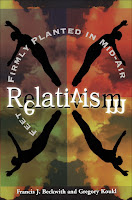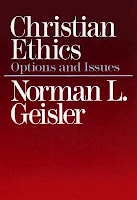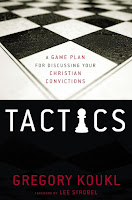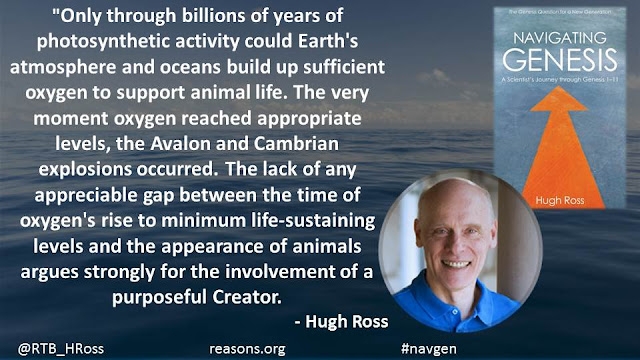Tap the links to learn more!

The mantras in today's university classrooms seem to be that science has proven Christianity false and that Christianity is anti-science. This could not be further from the truth of the situation. Science IS at odds with a worldview, and it may surprise you which worldview it is. Tap the link above to discover which one and how!
It is quite common for people to believe that since God is outside this universe that his existence cannot be tested. All the religious views make claims about the universe we live in, and some make the claim that God exists (and that their "holy" books were inspired by that God). Numerous claims are made in the Bible about our universe and can be put to the test. Tap the link to discover the claims and how they can be tested.
This is a big one! Too many professors are convinced that Christianity claims the universe is 6,000 years old, and (using the idea in the addressing the previous claim) since the universe has been discovered to be orders of magnitude older, Christianity has been shown to be false. However, the idea that Christianity teaches that the universe is 6,000 years old is false. If this is what you've always believed or been told, tap the link above to discover the truth about the Bible's claims about the age of the universe.
Many more scientifically testable claims of Christianity are found in the book of Genesis. Again, many of those in academia believe these too fail the test of reality. However, the tests fail because they have not read Genesis correctly. Tap the link above to see the proper understanding of Genesis and to see how the claims comport with modern scientific discoveries in uncanny ways.
While some people have a disdain for big bang cosmology because it demonstrates an ancient age of the universe, others (since it was first proposed) prefer to avoid it because it necessitates the need for a beginner. A big bang needs a "big banger." Everything that begins to exist has a cause; the universe began to exist; therefore, the universe has a cause. This is a powerful argument that the universe was started by something (or Someone) that transcends (is outside- see #2) this universe. Tap the link above to see the details of how such a conclusion can be reached in science.
Naturalists are wedded to the idea that our universe exists without any kind of purpose. However, when devices are reverse-engineered, the person examines the device's features and construction to determine how it was formed (usually in order to imitate the design). Such an engineer never concludes his reverse-engineering efforts with the idea that the device was not designed or has no purpose. When the earth, the sun, solar system, galaxy, cluster, super-cluster, and the universe as a whole are all reverse-engineered through science, we see that they all appear just like a humanly designed device- designed for a purpose. Tap the link above to get the details of this powerful argument.
Ever since the Miller-Urey experiment, scientists have been trying to find a naturalistic explanation for the origin of life. Yet as research continues and the scientific knowledge base grows, such a theory becomes less likely, not more. Tap the link above to see the where the research stands and see how naturalism does not have any hope for solving the problems.
It is common to believe that if two things have similar characteristics, the only explanation for that is a common ancestor. However, engineers and project managers know that is not true, for they employ the same designed features and processes for use in multiple devices and projects. Engineers and project managers do not see common features and conclude "common descent;" rather they conclude "common design," and they are correct. For more on this, tap the link above.
If scientists create life in the lab does that remove the need for a designer? Not at all. In fact, they just proved that a designer was necessary. For all the scientists involved ARE designers. The lab is not uncontrolled nature; it is a carefully controlled environment where chemical reactions can be started when necessary and stopped when the desired effects are achieved. When scientists create life in the lab, it will provide a powerful argument that life requires a Designer to be created. To learn more about this exciting scientific field, tap the link above.
If all that exists is this universe, then free will does not exist. This is a common claim in the university. Interestingly enough this necessarily implies that you are not really choosing to read this post or to go to college- rather you are determined by your environment what you are doing and going to do- you have no choice and no control, and neither do the professors. To see how this conclusion cannot logically be escaped, tap the link above (or not; it is your choice; or is it?).
Naturalistic evolution is governed by the drive for survival. If our brains are the product of naturalistic evolution, then they (and the beliefs they generate) are driven by survival. Over time useful fictions (pragmatic but false beliefs) are the beliefs that survive natural selection. If are what is false is necessarily selected by nature to be what we believe, then we cannot trust our beliefs about our world. We can only think that our beliefs have survival value but not truth-value...and we are not free to choose to believe otherwise (see #10). This ultimately undermines the purpose of college and the university. If this has you concerned and just curious, tap the link above for more depth.
Finally, the idea that morality cannot or should not be legislated because it is the same as establishing a state religion, is rampant in our universities. However, this is another claim that is false, and your professor is not likely to tell you such a thing. But is it really true that legislating morality is actually possible, legal, and wise? If God exists, then it follows that all those are true. Tap the link above for a thorough investigation of how this is the case from a Constitutional, legal, and logical standpoints.
More Resources!
For more discussions of God and science, please check out the
Science and Faith page,
Reasons to Believe,
Reasonable Faith, and
Cold Case Christianity.
*Please note that many excellent college professors affirm many if not all of the items in this list. This list is not meant to be an attack on professors specifically or even the university in general. Rather its purpose is to prepare the student to engage professors and fellow students, who disagree with these items, in an intellectual dialog and be able to support the claims evidentially.



























